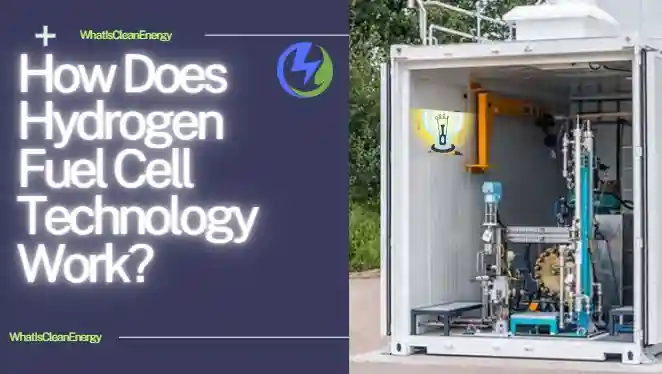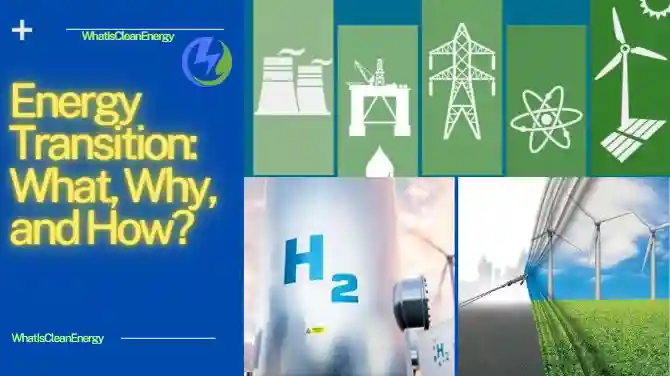Hydrogen is the simplest and most abundant element in the universe. It has many applications in different fields, such as industry, energy, medicine, and space exploration. In this article, we will explore some of the uses of hydrogen and how it can benefit humanity.
1. Industrial Uses of Hydrogen

Hydrogen is widely used in various industrial processes, such as:
- Synthesis of ammonia: Hydrogen reacts with nitrogen to produce ammonia, which is a key ingredient for fertilizers and explosives. Ammonia synthesis is one of the largest consumers of hydrogen in the world.
- Hydrogenation of oils: Hydrogen converts liquid vegetable oils into solid fats, such as margarine and shortening. This process improves the shelf life and texture of the oils.
- Refining of petroleum: Hydrogen removes sulfur and other impurities from crude oil and enhances the quality and octane rating of gasoline and diesel.
- Production of methanol: Hydrogen reacts with carbon monoxide to produce methanol, which is a versatile chemical that can be used as a fuel, solvent, or feedstock for other chemicals.
2. Uses of Hydrogen in the Energy Sector

Hydrogen is also a promising source of clean and renewable energy, as it can be produced from water and other abundant resources. It can be converted into electricity or heat with zero emissions. Some of the energy uses of hydrogen are:
- Fuel cells: Fuel cells convert the chemical energy of hydrogen and oxygen into electricity and water. Fuel cells can be used to power vehicles, homes, and businesses, as well as to provide backup power for critical facilities.
- Hydrogen vehicles: Hydrogen vehicles are vehicles that use hydrogen as a fuel, either in internal combustion engines or in fuel cells. Hydrogen vehicles have the advantage of producing only water as a byproduct and can offer a longer driving range and faster refueling than battery-electric vehicles.
- Power-to-gas: Power-to-gas is a process that converts excess electricity from renewable sources, such as wind and solar, into hydrogen, which can be stored or injected into the natural gas grid. This can help balance the supply and demand of electricity and reduce the dependence on fossil fuels.
3. Uses of Hydrogen in Medical Field

Hydrogen also has some medical uses, such as:
- Hydrogen inhalation: Hydrogen inhalation is a therapy that involves breathing in a mixture of hydrogen and oxygen gas. It can have anti-inflammatory, antioxidant, and neuroprotective effects and can help treat various diseases, such as stroke, heart attack, and lung injury.
- Hydrogen water: Hydrogen water is water that contains dissolved hydrogen gas. It can have similar benefits as hydrogen inhalation and can also improve hydration, metabolism, and skin health.
- Hydrogen peroxide: Hydrogen peroxide is a compound comprising hydrogen and oxygen. It can be used as an antiseptic, disinfectant, and bleaching agent, as well as to treat minor wounds, infections, and acne.
4. Uses of Hydrogen in Space Exploration

Hydrogen is also essential for space exploration, as it can provide both propulsion and power for spacecraft, such as:
- Rocket fuel: Hydrogen is the most efficient rocket fuel. It has the highest specific impulse and the lowest molecular weight. Combining hydrogen with oxygen or other oxidizers produces a powerful thrust and a large amount of water.
- Space station: The International Space Station (ISS) uses hydrogen to generate electricity and water. The ISS has fuel cells that use hydrogen and oxygen to produce electricity, and electrolyzers that use electricity to split water into hydrogen and oxygen. Hydrogen and oxygen can be stored or recycled by the system for future use.
5. Antioxidant Properties
Hydrogen has gained attention for its selective antioxidant properties, which are particularly beneficial in medical and health-related applications.
- Selective Scavenging of Free Radicals:
- Hydrogen acts as a selective antioxidant by targeting specific reactive oxygen species (ROS) such as the hydroxyl radical (•OH).
- It does not react with other ROS, which can be beneficial at low concentrations in cell signaling and homeostasis.
- Protection Against Oxidative Stress:
- By reducing the levels of toxic ROS, hydrogen can protect against oxidative stress, which is implicated in various diseases and aging.
- Therapeutic Potential:
- Clinical and experimental studies suggest that hydrogen can exert anti-apoptotic, anti-inflammatory, and anti-allergy effects.
- It has been used in conditions like ischemia-reperfusion injury, and inflammatory and neurological diseases.
- Hydrogen-Saturated Water:
- Drinking water saturated with hydrogen (approximately 0.8 mM H₂-saturated water) has been shown to improve lipid and glucose metabolism in subjects with diabetes or impaired glucose tolerance.
- It also has potential benefits in reducing inflammation in hemodialysis patients and treating metabolic syndrome.
- Safety Profile:
- One of the key advantages of hydrogen as an antioxidant is its safety profile. It is non-toxic and can be administered in various forms, such as inhaled gas or ingested in water.
- Mechanism of Action:
- The antioxidant mechanism of hydrogen involves hydrogen atom transfer (HAT) and single electron transfer (SET).
- These mechanisms allow hydrogen to neutralize free radicals effectively without disrupting cellular functions.
In summary, hydrogen’s role as an antioxidant is promising due to its ability to selectively neutralize harmful radicals while maintaining physiological ROS levels, contributing to its therapeutic potential in a range of medical conditions.
6. Anti-Inflammatory Benefits
Hydrogen’s anti-inflammatory benefits are particularly intriguing due to its potential to alleviate inflammation without the side effects often associated with pharmaceuticals. Here’s a deeper look into how hydrogen can be used for its anti-inflammatory properties:
- Reduction of Inflammation Markers:
- Studies suggest that hydrogen-infused water may help reduce markers of inflammation in the body, which could provide significant anti-inflammatory benefits.
- Pain Management:
- Hydrogen has been observed to have pain-relieving effects in models of sciatic nerve ligation and inflammatory pain.
- In an inflammatory bowel disease (IBD) model, hydrogen water effectively alleviated abdominal pain.
- Improvement in Conditions Caused by Inflammation:
- Chronic inflammation is linked to various health conditions, including heart disease, diabetes, and arthritis.
- Hydrogen’s anti-inflammatory quality may reduce the risk of these diseases.
- Support During Cancer Treatment:
- A study involving people with liver cancer showed that drinking hydrogen-rich water during radiation therapy could improve the quality of life by mitigating side effects like fatigue and nausea.
- Enhancement of Athletic Performance:
- Hydrogen water is said to increase energy, reduce inflammation, and reduce recovery times after workouts.
- A study of soccer players indicated that drinking hydrogen water may reduce muscle fatigue and muscle function decline caused by exercising.
- Safety and Accessibility:
- Hydrogen water is non-toxic and can be easily integrated into daily routines, either by drinking bottled hydrogen water or by using tablets to infuse regular water with hydrogen gas.
The current research into hydrogen’s anti-inflammatory effects is promising, but it’s important to note that further research is needed to fully understand and confirm these benefits. Nonetheless, the potential for hydrogen to serve as a natural and safe anti-inflammatory agent is an exciting prospect for the future of medical treatments and health maintenance.
7. Environmental benefit
Hydrogen has a significant role to play in environmental applications, particularly in the context of clean energy and reducing carbon emissions. Here’s a detailed look at its uses in the environmental sector:
- Decarbonization of Energy Systems:
- Hydrogen is increasingly recognized as a clean and reliable energy vector for decarbonization and defossilization of various sectors.
- It can be produced from renewable sources like water electrolysis, which, when powered by renewable energy, results in zero carbon emissions.
- Clean Fuel for Transportation:
- Hydrogen fuel cells power vehicles without emitting pollutants or greenhouse gases, releasing only water. This makes them a clean, environmentally friendly alternative to traditional fossil fuel engines.
- Energy Storage:
- Hydrogen can be used to store excess renewable energy, such as solar or wind power, which can be converted back to electricity when needed, helping to balance supply and demand.
- Reducing Industrial Emissions:
- In industries like steel and cement manufacturing, hydrogen can replace fossil fuels as a cleaner energy source, thus reducing industrial carbon emissions.
- Supporting Grid Stability:
- Hydrogen provides a flexible and clean option for grid stabilization and energy storage in power systems.
- Life Cycle Environmental Impact:
- Life cycle analysis of hydrogen production routes shows that green hydrogen, produced via electrolysis with renewable energy, has a much lower environmental impact compared to hydrogen produced from fossil fuels.
- Global Hydrogen Demand and Environmental Goals:
- The global hydrogen demand is projected to increase, and its development is aligned with the United Nations’ goal of ‘affordable and clean energy’, contributing to a sustainable future.
Hydrogen’s use in environmental applications is pivotal for achieving a clean, secure, and affordable energy future. It offers a way to significantly reduce greenhouse gas emissions and combat climate change, while also providing a flexible energy carrier for various applications.
Conclusion
Hydrogen is a versatile and valuable element that has many uses in different fields. You can use hydrogen to synthesize important chemicals, produce clean and renewable energy, treat various medical conditions, and explore outer space. Hydrogen also helps reduce greenhouse gas emissions and dependence on fossil fuels, contributing to a sustainable and prosperous future for humanity.
Disclosure: This content is reader-supported. As an Amazon Associate, we earn from qualifying purchases. Thank you for being so supportive!













